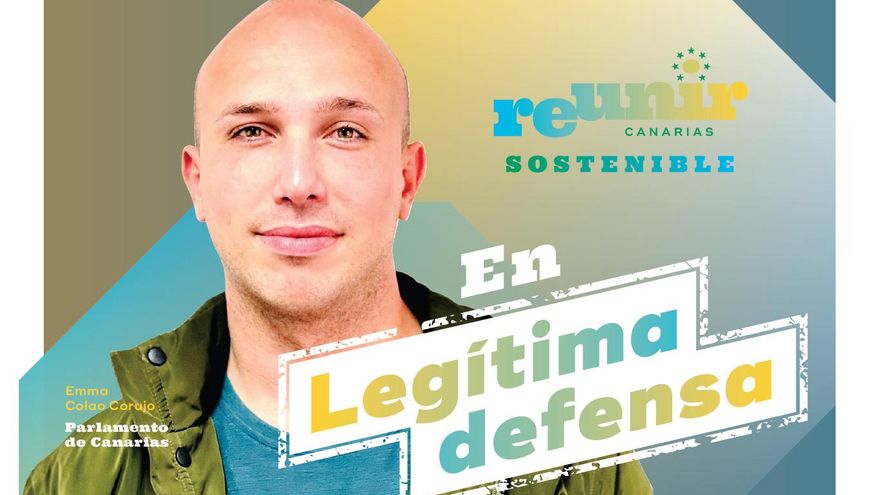
Oddly enough, the electoral campaign officially begins todayl despite the fact that the parties have been shouting at each other for months, in a bottomless race of meetings with associations of all kinds, tours of neighborhoods, aimless press conferences, including pre-campaign rallies (Pedro Sánchez and Santiago Abascal have already come), on Saturdays, Sundays and holydays. By law, the campaign is supposed to begin fifteen days before the elections to be held on the 28th of this month, but the truth is that the parties have turned the pre-campaign into a very long electoral period. Last night the traditional starting signal was given with the pasting of posters, although some formations, due to environmentalism and not dirtying public roads with banners or stickers that can survive for years without being removed, have chosen to carry out a digital campaign . In these fifteen days the electoral acts, debates, the fights and the and you more will multiply.
LOpposites attract and as a button shows. Vox and United Yes We Can They celebrate their central act in the same space, the well-known Sala Alboroto, in Las Palmas de Gran Canaria, and on the same weekend. tomorrow, shouting “Cañas through Spain”, Vox brings Juan García-Gallardo, vice president of the Junta de Castilla y León and party leader in that community. That will be in the afternoon. Hours later, on Sunday morning, he will step on that same scenario Pablo Iglesias to support their United Yes We Can candidates.
The parties have produced the most diverse posters that will populate the streets: some have been sober, playing with the color with which the formation is identified as the PP, United for Gran Canaria or Canarian Coalition with the tricolor flag. Most have focused on the faces or the middle torso of the candidates, lopsided smiles and casual poses, although almost all choose to cross their arms, and photoshop prevails. There are posters that attract attention, like the one of Casimiro Curbelo from La Gomera, which looks like an advertisement for a movie, deserves to win the Oscar. In addition, there are banners with extensive slogans, where they have wanted to say everything, like those of the PCPC, or where they play with words like United Yes We Can with the term “impossible”, as if everything is “possible”; exhaustive slogans: “In legitimate defense” by Reunir Canarias Sostenible, or the funniest such as “Changing what is a gerund” by Ando Sataute, from Santa Brígida.
In the elections of In 2019, the autonomous constituency was released for the first time together with the island lists for Parliament. Two ballot boxes, two votes for the same institution. This year is repeated, and even ordinary mortals do not understand what difference there is in one urn or another. Well, a political pact for electoral reform to give greater representation to the most populated islands (Gran Canaria and Tenerife) compared to those with a smaller population whose vote, however, has much more value. Thus, in the autonomous constituency nine of the 70 deputies are elected, and in the insular constituencies the representatives of each island. These constituencies distribute 61 seats: 15 in Gran Canaria, 15 in Tenerife, eight in Fuerteventura, the same andn Lanzarote and La Palma, four in La Gomera and three in El Hierro. In addition to these two ballot boxes, those of the 88 city councils and those of the seven councils are added. In other words, the Canary Islands will have 2,943 polling stations and 11,772 ballot boxes. Only a thousand candidates attend the regional Chamber.
In total, 1.8 million voters will be able to vote in the regional and local elections, of which 162,109 are Canarians residing abroad, a census made up of people living in more than one hundred countries, among which those residing in Cuba stand out. , with 63,319 voters and Venezuela, with 47,396, which together represent 68.3% of the total voters in this census.
On the other hand, to the municipal elections the 44.48 will be able to vote5 foreign residents belonging to EU countries and countries with which Spain has signed a reciprocity agreement for these elections, such as the United Kingdom. The Italians, with 17,096 voters, are the most numerous. And, for the first time, 83,128 young islanders will elect their mayor and their regional and insular presidents in the midst of great uncertainty, since at this point 40% of this electorate has not yet decided who to vote for.
AND How to convince the voters? The parties formulate proposals of all kinds in their electoral programs, many of them similar, such as the improvement of health, social rights, education or sustainability. Those who have been in the opposition (CC and PP) reiterate that it is necessary to lower taxes. Government groups speak of selective reductions. The PSOE proposes 199 measures, but it is focusing a lot on solving the housing problem. CC and NC defend more self-government and canariedad. The Canarian Coalition insists that it is essential that the Canaries elect a party that will fight against the injustices of the central government. In the eco-tax or the tourist moratorium, NC and United Sí Podemos coincide, and the PP has put improving health as its battlefield. And today is only day 1.
















